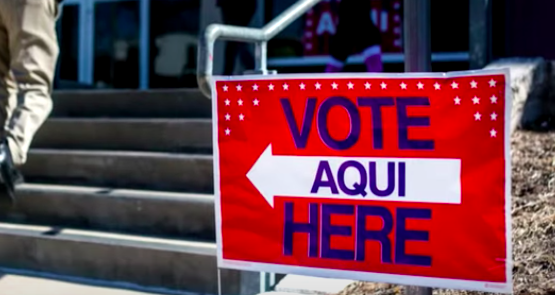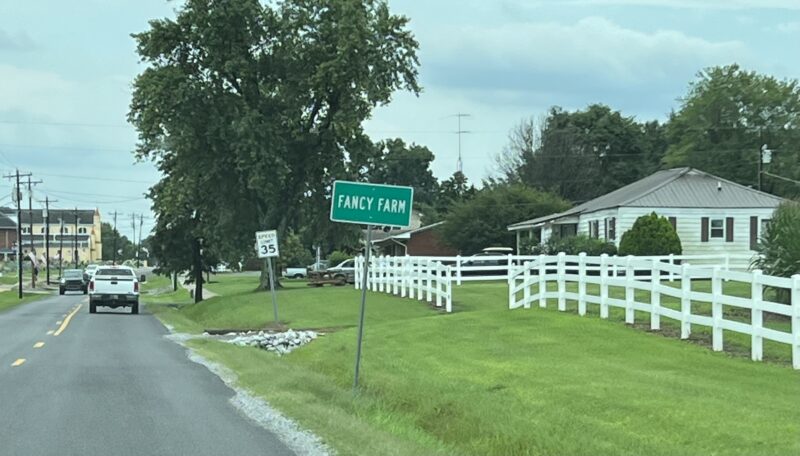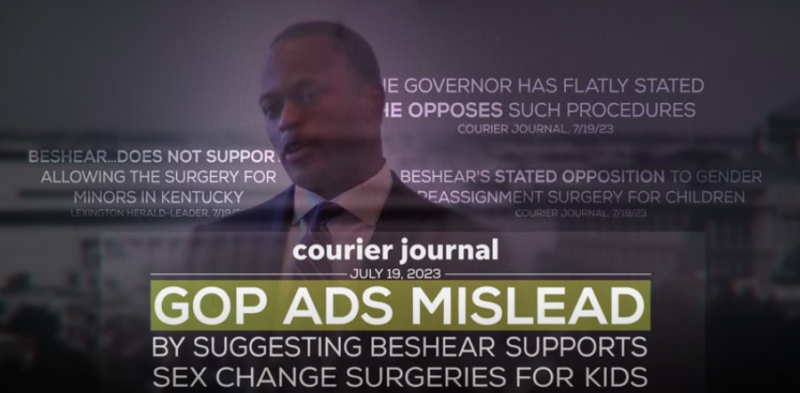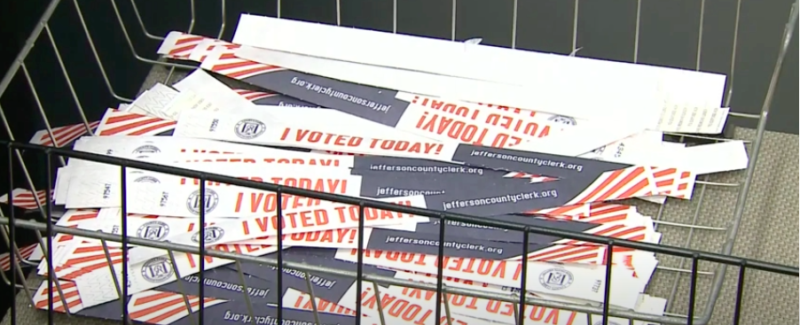Op-Ed from T.J. Hensley
In July this past year, the state Republican Party made a big show of their overtaking the Democrats in number of registered voters in Kentucky. It was an underwhelming victory, largely blown out of proportion (perhaps a foreshadowing of Republican performance in the midterms which would be held just four months later?), as even according to the most recent numbers, the Republicans outpace the Democrats by a little more than thirty-five thousand voters (less than 1% of the total number of registered voters in the Commonwealth).
While it might be expected for the state Republican Party to miss that critical nuance, the reality which is often borne out in statewide and national elections is that Kentucky has been trending more Republican. Kentucky hasn’t voted for a Democratic Presidential candidate since 1996, when Bill Clinton captured around 45% of the vote (no doubt aided by independent Ross Perot garnering 9% of the state’s vote, likely siphoning off votes from GOP nominee Bob Dole). Nor has the state backed a Democratic Senate nominee since Senator Wendell Ford’s last campaign for that office in 1992.
Even still, the supposed truism that “Kentucky is a Republican state” must be said with a list of caveats longer than the list of 2023 GOP Gubernatorial candidates. Kentucky voted for a Democratic Attorney General in 2015 in Andy Beshear, who would then go on to unseat incumbent Republican Governor Matt Bevin, even as Bevin had the support of Donald Trump. Today, Beshear ranks as the most popular Democratic Governor in the country; quite a feat given that more populous states are also headed by Democratic chief executives, such as New York, California, and Michigan.
The long and short of it is that, Kentucky politics is complicated in terms of where the political loyalties of its people lie. My home region of eastern Kentucky has often been stigmatized by liberals as a “problem child”, its people supposedly solely to blame for electing Donald Trump in 2016 (never mind that it was underperformance of a lackluster Democratic candidate in traditionally blue states which ultimately won the White House for Trump). Alternatively, it’s been lauded by conservatives as the paradigm of hard-working self-reliance. Don’t get me wrong, the people of eastern Kentucky are indeed among the most hard-working and resilient people you will ever meet, having weathered indescribable adversity for hundreds of years. But what, we must ask, is the source of that adversity that folks in the region have had to weather? The historical, detrimental impacts of a one-sided, extraction-based economy, with no return investments in infrastructure, healthcare, or education. And whenever a program or initiative to materially benefit people in eastern Kentucky through addressing those inequities is offered, those same conservative legislators (at the state and federal level) oppose them to the hilt, decrying ideas such as expanded healthcare or paid family leave as “radical policies of the far left” (as if Joe Biden could pass as a radical leftist). In different ways, this feeling of being a pawn in a political chess match by equally disinterested parties resonates across Kentucky, as Charles Booker would say, “from the hood to the holler”.
Is it any wonder, then, why so many in Kentucky are leaving both the Republican and Democratic Parties? The number of registered independents (those who have not registered with any major political party) has increased substantially in Kentucky. For instance, in the five years since 2016, independent voters in Kentucky have increased more than 100%. By contrast, over the same five years, the number of registered Democrats has decreased by around 4%, and the number of Republicans has increased by a mere 27% (the pattern of an underperformance by Republicans, who then claim a “big victory”, seems to hold true).
The explanation which seems to be most frequently offered to describe the independent voter. Is that of a “middle of the road” type of person; uncomfortable with the shift in both the Democratic and Republican parties toward “the extreme”. There most certainly are some independent voters who fit this description, but do they all? Younger voters may offer the key to understanding the real psychology behind the surge of the independent voter. Millennials (those born between 1981 and 1996) and Generation Z (those born after 1996) have been the source of much attention, with questions abounding as to when they will overtake older voters as the most populous voting bloc. That day will be here sooner or later, and so the fact that 44% of Gen Zers and 52% of millennials (according to Gallup) identify as independents is worth exploring.
Given the dominance of young voters in the independent surge, we might would ask what policies they support. The answer may be surprising to some: young voters overwhelmingly support government-run, single-payer health insurance, universal basic income, tuition-free public college, raising the minimum wage to $15, and they strongly support federal action protecting the rights of workers to organize into labor unions.
These numbers may surprise those who ascribe to the “middle of the road” explanation of the surge of the independent voter, as the policies just listed seem to fit with the more left-wing factions of the Democratic Party. Perhaps this entails that we ought to have a larger conversation on what “radical” means, who gets to decide what it means, but that is a topic for another article.
But speaking as a young voter myself, these numbers aren’t surprising to me at all. I have friends who occupy almost every inch of length of the political spectrum, and among all of us is a keen understanding that our political and economic system is broken. Many of us perceive that both major parties have mostly been captured by large corporate interests; companies and ultra-wealthy individuals with such a direct financial and existential interest in for-profit healthcare, in student loan debt, in paying starvation wages and suppressing unionization, that they will support any political candidate who will preserve the status quo. We do not see a home in either party, because we only see one party, split into a red and blue team, each of which tasked with running up the score for corporate America, at the expense of the working class (maybe this analysis is tinged by my own political bias, but in the words of Mitt Romney as played by Jason Sudeikis on Saturday Night Live, “I can live with that”).
So what does this mean for the Democratic and Republican Parties in Kentucky? Simply put, they will have to ignore independent voters at their own peril. Traditionally, that warning would be taken to mean that both parties will have to moderate their language and their policy with hopes of winning the “middle of the road” independents. In the current moment, it appears the word “moderate” has disappeared from the GOP vocabulary (at least on the national stage), and with veto-proof supermajorities in both the State House and the State Senate, the Kentucky GOP will not be looking to change its electoral strategy for some time. By contrast, with numbers in the Legislature that seem to dwindle with each passing election cycle, Kentucky Democrats don’t have much to lose in at least considering new ideas.
Lest I rewrite my previous opinion piece on the need for the Democrats to embrace a “New Deal” in Kentucky (y’all should go read that article), the upshot is that Democrats should embrace the priorities of a majority of independent voters: free healthcare, universal income, the right to make a living without starving, the right to join a union, and much more. If they do not, then it seems that the state Democratic Party, along with the state GOP, will eventually face the same fate: utter political irrelevance. To remain viable, you need registered voters, and while yes, independents constitute only about 4% of registered voters in Kentucky, that number has increased every year since 2016, and as we’ve seen, it has increased at a rate which dwarfs increase in membership in both major political parties in Kentucky over that same period of time. If Kentucky Democrats do not make a concerted effort to appeal to what I have detailed as reform-minded independents, and instead lean into “milk toast” moderate policies that seems to have caused much of the independent surge in the first place, then the Party (for both sides) will soon be over, maybe not now, but someday soon.
T.J. Hensley is a senior at Georgetown College in Kentucky, where he is studying Political Science and Philosophy. His opinions are his own. He is the host of the Appalachian Firesides Podcast on Apple and Spotify, in which he discusses subjects related to the politics, culture, and history of Appalachia.



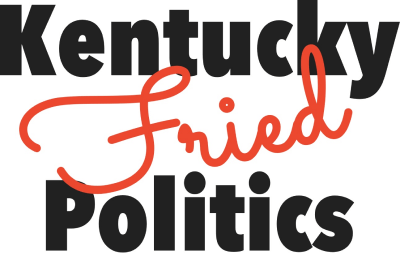
 Login
Login  Must include at least 8 charaters
Must include at least 8 charaters